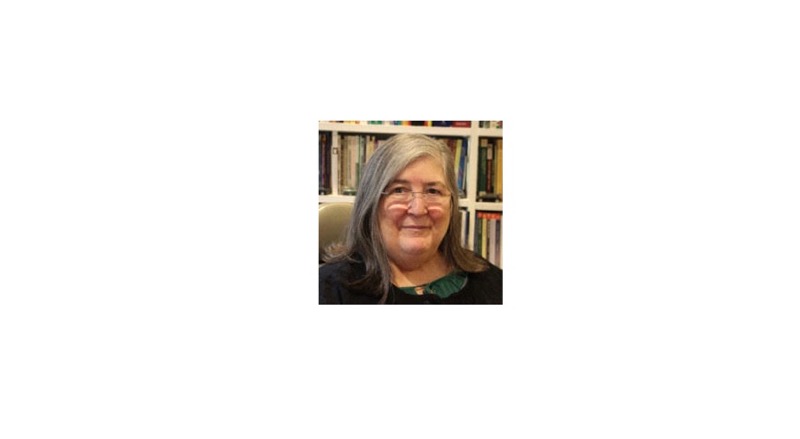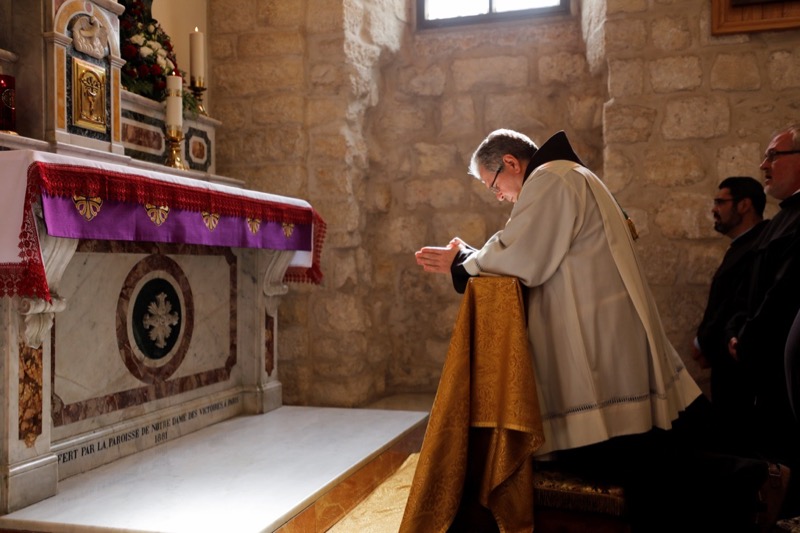Listen to Fr Alban McCoy’s sermon here.
There are two words in this gospel that occur nowhere else in the whole of the New Testament: in order of appearance, απορiα (aporia) and κραιπαλη (kraipale). The first means the perplexity you feel when your thinking reaches a dead end. Plato used it, for instance, to describe the kind of confusion into which Socrates lured his hapless interlocutors. The postmodernist writer, Jacques Derrida (1930-2004), used it to describe the absence of any overall structure to thought and the impossibility of any grand narrative or all-encompassing account of things. Luke, whose Greek was a cut above the other gospels, uses the word to describe that state of mind which will descend upon us all when the cosmic events that Jesus predicts in this gospel come to pass at the end of time. The second word, κραιπαλη, means, quite literally, a drinking bout, the origin of our word “crapulous” which means, of course, suffering from a hangover.
Luke uses this word to describe one of the ways we might be tempted to distract ourselves now from the reality that will overtake us all then. The other way of distracting ourselves, he calls “the cares of life”, μερaμναις βιωτικαaς. He makes the sensible point that such anodynes as the bottle and busy-ness will leave us dangerously off-guard and unprepared and will serve only to deepen our distress on that day. To sum it up: he’s telling us that using κραιπaλη to ease our απορiα is, at best, unwise and, at worst, pointless.
Now Luke was an educated, literate man who chose his words carefully. He hadn’t, of course, read Derrida (and was none the worse for it) but he certainly knew what the first of these words, απορiα, meant among educated ancient Greek thinkers. He’s telling us that when the end of the world and judgment approach, all our present certainties will be shaken and nothing of which we are now sure will make any sense.
The crisis we’ll face, in other words, won’t be just cosmic turmoil, but inner turmoil, a crisis of faith. He predicts, rather terrifyingly, that people will “faint from fear and foreboding”. No age, of course, and no individual, is without fear: whether it’s fear of the terrorism or war or death.
But the kind of fear Luke predicts here is of another order altogether: not so much fear as dread, when the heavens and the earth and the sea will be shaken, in what will seem like the very undoing of creation.
But despite all this, the message of this gospel is essentially one of hope. For all Luke’s disturbingly graphic detail, he speaks much more emphatically than the other three gospels, about the light that will dawn after the darkness. And it’s that knowledge that bolsters us to face all these things, including our own death, not just with unflinching stoicism but full of hope; because these events, both cosmic and personal, will be the beginning of that fulfilment for which we have longed and waited and for which we were created.
And he adds these stirring, exhilarating words: “When these things begin to happen, stand up and lift up your heads, because your liberation is at hand.” (The word means specifically “liberation from slavery”.) In the meantime, he exhorts us with sober realism to watch and pray that we will be able to do just that: that we will be able to stand with our heads high before the Son of Man when he comes.
Of course, if we’re in the middle of a κραιπaλη, a drinking bout, or suffering from a hangover, we might not be able to stand at all.
What has all this got to do with Advent? As our lives unfold from day to day and from year to year, Advent annually recapitulates the whole story of our redemption, in order to re-position us, as it were, in response. Advent is the “in-rush” of realism, focusing our minds and hearts on the hope that sustains us as we journey towards our goal.
In Advent, we affirm our faith in the future; or better, we affirm our faith that we have a future. That future is God, our origin, our goal, and our home, the fulfilment of every desire and the source of endless delight and happiness. Advent is thus a precious time, repeated year after year, but losing none of its power to revive and rekindle in us the comfort and consolation of that “holy longing”, which St Augustine says is the very heart of the Christian life.



 Loading ...
Loading ...
What do you think?
You can post as a subscriber user ...
User comments (0)